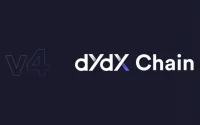Japan Blockchain Association Pushes For Crypto Tax Revision
The Japan Blockchain Association (JBA), led by Yuzo Kano, Representative Director of bitFlyer Co. Ltd., submitted a formal request to the government to overhaul the tax system concerning crypto assets (virtual currency). The proposed changes aim to foster the growth of Web3 (distributed web) businesses in Japan and create a more favourable environment for citizens to own and utilize crypto assets.
About 6.8 million cryptocurrency accounts have been opened in Japan as of April 2023. 43.9% of the respondents said that if the tax system is adjusted, the amount of investment is expected to more than double.
— Wu Blockchain (@WuBlockchain) July 29, 2023
JBA’s Request
The specific requests presented by the JBA are as follows:
- Elimination of year-end unrealized gains taxation on tokens issued by third parties: The current tax system imposes year-end unrealized gains tax on tokens issued by third parties, serving as a significant barrier for domestic companies to venture into the emerging Web3 industry. By removing this tax, companies would no longer be required to sell their tokens solely for tax purposes, consequently reducing the obstacles for entering the Web3 market. Additionally, the elimination of this tax is expected to foster the growth of token-enabled economies, as selling tokens for tax payment can cause token prices to decline.
- Change the taxation method for individual crypto asset transactions to separate taxation and set a uniform tax rate of 20%: The JBA proposes a shift from the current comprehensive taxation method to separate taxation for individual crypto asset transactions. This would enable investors to carry forward and deduct losses for up to three years following the year in which the loss was incurred, thereby reducing tax burdens. According to the Japan Crypto Asset Exchange Association (JVCEA), there has been a significant increase in the number of crypto asset trading accounts in Japan, making separate taxation a more favorable option for investors. A JBA survey revealed that 3.2% of respondents stated they would significantly increase their investments if separate taxation were implemented.
- Elimination of income tax on profits from each crypto asset exchange: The removal of income tax on profits generated from crypto asset exchanges is expected to enhance the functionality of Web3 use cases, such as DeFi (Decentralized Finance) and NFT (Non-Fungible Token) markets, resulting in improved convenience for crypto asset users.
JBA’s Tax Plan
The JBA’s primary objective with these proposed tax reforms is to position Japan as a leading Web3 advanced country, both domestically and internationally. They believe that the creation of a Web3 economic zone will not only boost a new industry but also contribute significantly to Japan’s overall economic growth and transformation.
Moreover, the JBA contends that implementing these changes will lead to increased adoption of crypto assets, higher investments, more profit-taking, and improved tax compliance, ultimately contributing to higher tax revenues. A report from Coincub, a crypto asset analysis firm, revealed that as of the fourth quarter of 2022, Japan ranked 64th out of 204 countries in the global crypto asset ranking. Although Japan received high evaluations for financial factors, regulatory aspects, and human resources, the taxation of crypto assets received a lower rating at 15th.



